Scenes from Private Lives (1931)
I love Norma Shearer.
Let me be more specific. I love pre-Code Norma Shearer.
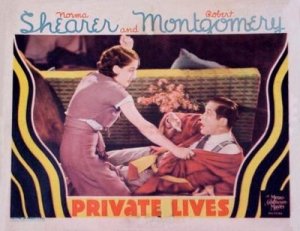 My first Norma Shearer movie was The Women, made in that great year for film, 1939 – five years after the establishment of the Production Code Administration. The Women is one of my favorite movies – I think I’ve seen it more times than any other – but the Norma Shearer who played the staid Mary Haines in this feature is a far cry from the Norma she was in her films between 1930 and 1934. I’m wild about these features – and plan to write about many of them in the future – but the one I love the most is Shearer’s only comedy during this period – Private Lives.
My first Norma Shearer movie was The Women, made in that great year for film, 1939 – five years after the establishment of the Production Code Administration. The Women is one of my favorite movies – I think I’ve seen it more times than any other – but the Norma Shearer who played the staid Mary Haines in this feature is a far cry from the Norma she was in her films between 1930 and 1934. I’m wild about these features – and plan to write about many of them in the future – but the one I love the most is Shearer’s only comedy during this period – Private Lives.
Private Lives is based on a 1930 Noel Coward play which was a hit in London and on Broadway, starring Coward and Gertrude Lawrence, before MGM executive (and Norma Shearer’s husband) Irving Thalberg bought the rights for the film adaptation. It’s said that Shearer prepared for the film by repeatedly studying a filmed version of one of Lawrence’s stage performances, but whatever she did, and however she did it – it worked. I always enjoy her dramatic roles, but in Private Lives, she is a revelation – alluring and funny, effortless and charming. Alongside Shearer as Amanda, the film stars Robert Montgomery as Elyot (in the fourth of his five pictures with Shearer), Reginald Denny as Victor, and Una Merkel as Sibyl. In a nutshell, the story focuses on Amanda and Elyot, a divorced couple who find that they are honeymooning with their respective new spouses (Victor and Sibyl) at the same hotel. Notwithstanding the constant bickering that led to their split, Amanda and Elyot discover that they are still in love with each other – which leads to a series of uproarious exchanges, side-splitting episodes, and one memorable scene after another.
The personas of the four main characters are revealed minutes into the film: Amanda is high-spirited and irreverent, while her new spouse, Victor, is a solid, if unexciting sort. Elyot is dapper, fun-loving, and charismatic, and his bride, Sibyl, is flighty and insecure. These traits are illustrated in a series of brief but telling scenes at the outset of the film — we see the somber, highly formal church wedding of Elyot and Sibyl, contrasted with the Justice of the Peace nuptials of Amanda and Victor, which is interrupted by a gaggle of giggling schoolchildren peeking in the window of the office where the ceremony is taking place. (While Amanda is amused by the mischievous tots, unable to contain her mirth, Victor is plainly aghast.) More is revealed as the respective couples are en route to their honeymoon destination – on the plane, Elyot barely manages to mask his irritation with his bride as she insists on seeking assurance that he is happy (“Happier than before?” she inquires, none too subtly). Similarly, as Amanda and Victor travel by ferry, enjoying a picnic supper, Victor questions his wife about her relationship with Elyot and she rather gleefully recalls one of their many fights: “Once I broke four gramophone records over his head,” she admits between bites of her sandwich. “It was very satisfying.”
One of my favorite scenes is the one where Amanda discovers that her ex-husband’s suite is next to her own. Shearer’s acting is a thing of beauty – she conveys an entire range of thoughts, emotions and reactions without saying a single word (a testament, surely, to her beginnings in silent film). The scene begins as Amanda steps out onto her terrace to enjoy the night air. She deposits her wrap on a chair and adjusts the belt on her gown, an expression of boredom and faint discontent on her face. Suddenly, she takes notice of the song being played by an orchestra nearby. Her face softens, transformed by a joyous memory the music evokes, then changes just as quickly to determined stoicism. Seconds later, from the adjoining terrace, Amanda hears a man’s voice humming along with the tune. She realizes that it is her ex-husband, Elyot. She freezes, as if afraid to confirm what she knows in her heart to be true, then finally allows herself to turn in the direction of the voice and spies Elyot between the hedges that separate the two terraces. Instinctively, her body sways toward him, one hand slightly outstretched, then, in alarm, she recoils, using the same hand to stifle a gasp. She looks away, her mind reeling with uncertainty and indecision, then blissfullly gazes heavenward. She suddenly remembers Victor, and shoots an apprehensive glance over one shoulder, but then turns back to Elyot’s direction, almost unable to comprehend her predicament. She turns then, heading for the safety of her suite where Victor awaits, but she pauses before crossing the threshold, as if restrained by some unseen force. Gazing back at Elyot, her face now adopts an expression of resolve, and she quietly closes the door to the suite, crossing the terrace to settle into a chair next to the hedges. A smile lights her lips as she begins to sing a verse of the song, her eyes gleaming with anticipation, knowing that Elyot can hear every word.
After Amanda and Elyot experience their terrace encounter, both return to their respective spouses, each insisting that they leave the hotel immediately. The alternating scenes showing their valiant, but unsuccessful efforts, are simply hilarious to me – the memorable lines fly like daggers. When Sibyl fails to acquiesce to Elyot’s argument of impending doom, Elyot tells her, “If there’s anything in the world that infuriates me, it’s sheer, wanton stubbornness. I should like to cut off your head with a meat ax.” (That gets me every time.) Meanwhile, next door, Amanda has concocted a fantastic tale of her own, telling Victor that she just remembered a horrible family tragedy she’d experienced in the hotel years before. Victor sees through her ruse, however, causing Amanda to pull out all the stops in her quest for the couple to flee to Paris: she offers plaintive but utterly fake weeping, then grows defensive, turns suddenly to earnest pleading, and finally gives way to full-blown abuse: “I see quite clearly that I’ve been foolish enough to marry a fat old gentleman in a club armchair,” she observes. “You’re a pompous ass! A pompous ass, that’s what I said and that’s what I mean. Blown off with your own importance! Get away from me! I can’t bear to think that I’m married to such rugged grandeur.”
Shearer demonstrates in this film that she’s one of the most authentic criers in film. She doesn’t have cause very often in Private Lives, goodness knows, but when she does, it packs a wallop. The first time comes after she’s crossed over onto Elyot’s terrace as they share their mutual failures to convince their spouses to vacate the premises. The orchestra once again begins to play the tune Amanda heard earlier – it turns out that it’s a song, “Someday I’ll Find You,” which holds great meaning to them both. (Incidentally, the song was written by Noel Coward.) The sweet melody moves her to tears, as she summons up a pleasant memory from her past with Elyot. Later in the same scene, she’s nearly overcome with emotion, barely holding herself together when Elyot admits that he still loves her, with sentiments that are among the loveliest I’ve heard: “I’ve never loved anyone else for an instant,” he says. “You don’t hold any mystery for me, darling – do you mind? There isn’t a particle of you that I don’t know, remember, and want. More than any desire in the world, deep down in my deepest heart, I want you back again. Please.” (Heck, who could hold themselves together after that?)
Amanda and Elyot scandalously decide that they simply must run away together, and they do, leaving their new spouses behind and heading for Amanda’s chalet in the Swiss Alps. But, warding against the inevitable bouts of bickering that typified and led to the downfall of their marriage, they decide on a catchphrase (“Solomon Issacs” – later shortened to “Sollocks,” the name of a train station in France) which, when uttered by either of them in the heat of an argument, will require them both to fall silent for two minutes. I love the idea, which was successful for a while – I was so impressed with it, in fact, that I tried it with my two daughters when they were younger. (It worked for them, too . . . for a while.)
Unfortunately for our duo – but luckily for us – it doesn’t take long for their heartfelt pact to melt away, in the words of Shelley, like moonlight in the heaven of spreading day. It only takes one comment by Amanda to kick off the battle to end all battles – as Elyot rains kisses on her neck, she laughingly – but more than once – asks him to stop. “Why should I stop?” he asks. “You know you adore being made love to.” And Amanda responds, “I know – but it’s too soon after dinner.” It’s the beginning of the end. Although Amanda does explain: “You simply don’t realize there are certain moments when our cosmic thingamies don’t fuse properly” – and her employment of the “Sollocks” treaty serves to provide a brief cease-fire — it doesn’t take long for their bickering to become a roaring conflagration. After tossing around non-stop insults, their battle become physical when Amanda tries, without success, to prevent Elyot from turning off the phonograph record she is blasting. In the movie’s funniest moment – and one quite unlike any I’ve ever witnessed – Amanda calls him an “insufferable pig” and breaks the record over Elyot’s head – and he responds by labeling her “a spiteful little beast” and slapping her face! From there, the scene simply has to be seen to be believed as Amanda and Elyot engage in a knock-down, drag-out, no-holds-barred brawl. (Reportedly, Robert Montgomery was actually knocked unconscious at one point during filming. I’m not at all surprised.). This fabulous scene ends as Victor and Sibyl arrive at the chalet and stand observing the conclusion of the battle in wordless amazement.
I love the wrap-up of the film, which features a delightful scene with this dysfunctional foursome seated around the breakfast table. It’s the very definition of “comedy of manners.” Although Amanda tries mightily to maintain her fury with Elyot, she is soon tittering against her will at his droll quips, and the brioche hits the fan when she finally laughs so hard that she chokes on her coffee. When Victor berates Elyot for his attempts at humor, Sibyl comes to the defense of her man, leading to a spat between the two that threatens to rival any skirmish we’ve seen between Elyot and Amanda. Their intense dispute gives Amanda and Elyot the perfect opportunity to sneak out again together, and an ironic twist in a train car finds them, gratefully, in each other’s arms again at the film’s end.
Aside from the performances, what I love most about Private Lives is Coward’s witty dialogue. Early on, for instance, there is this exchange between Elyot and Sibyl after the latter insists on bringing up Elyot’s first wife:
Sibyl: She was pretty, wasn’t she? Amanda.
Elyot: Very pretty.
Sibyl: Prettier than I am?
Elyot: Much.
Sibyl: Elyot!
Elyot: She was pretty and sleek, and her hands were long and slim, and her legs were long and slim, and she danced like an angel. You dance very poorly, by the way.
Sibyl: Could she play the piano as well as I can?
Elyot: She couldn’t play the piano at all.
Sibyl: Ah. Has she my talent for organization?
Elyot: No – but she hasn’t your mother, either.
Sibyl: She had a violent temper. She was wicked and uncontrolled and unfaithful.
Elyot: She wasn’t unfaithful.
Sibyl: How do you know? I bet she was. I bet she was unfaithful every five minutes.
Elyot: It would take a far more concentrated woman than Amanda to be unfaithful every five minutes.
And the name-calling! It’s simply priceless. Here’s a sample of some of the many put-downs that are hurled during the film:
- You’re hateful and beastly! Mother was perfectly right – she said you had shifty eyes!
- She should talk, the squinting old battleax.
- You’re an unmitigated cad and a bully.
- And you are an ill-mannered and bad-tempered slattern . . . yes, slattern and fishwife.
And the best of all:
- Certain women should be struck regularly, like gongs.
The film rightly earned rave reviews from the critics of the day – the reviewer for Motion Picture wrote that Shearer “reveals herself as a charming comedienne,” and John Gammie in The Film Weekly judged that her “tempestuous performance will simultaneously astonish and delight her admirers.”
 Private Lives is on DVD – so you have no reason to go another day without seeing it. If you like Norma Shearer, witty comedy, and pre-Code film, then this is the movie for you!
Private Lives is on DVD – so you have no reason to go another day without seeing it. If you like Norma Shearer, witty comedy, and pre-Code film, then this is the movie for you!









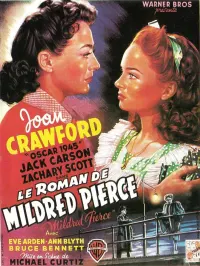




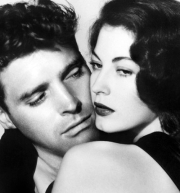
















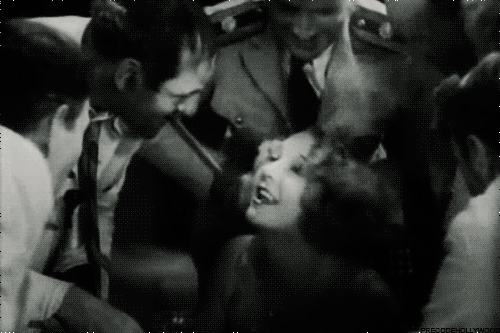


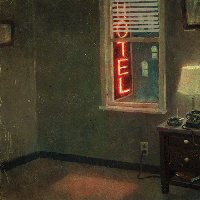
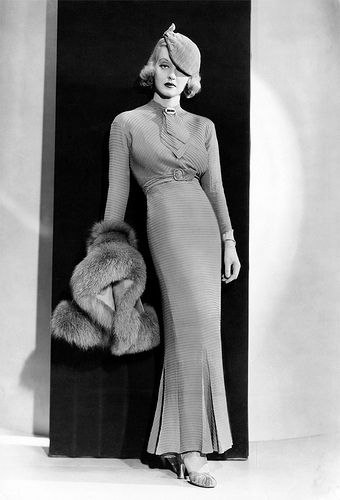



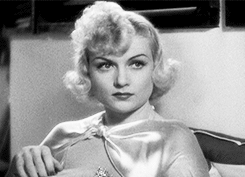
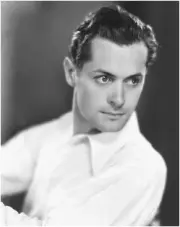
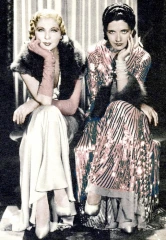





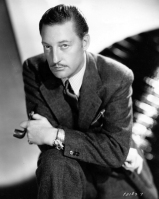




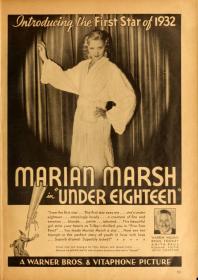
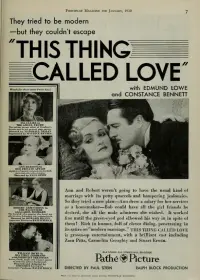

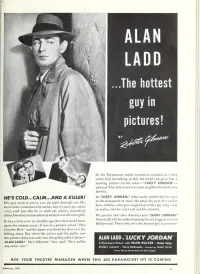
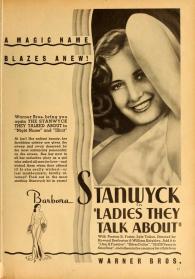

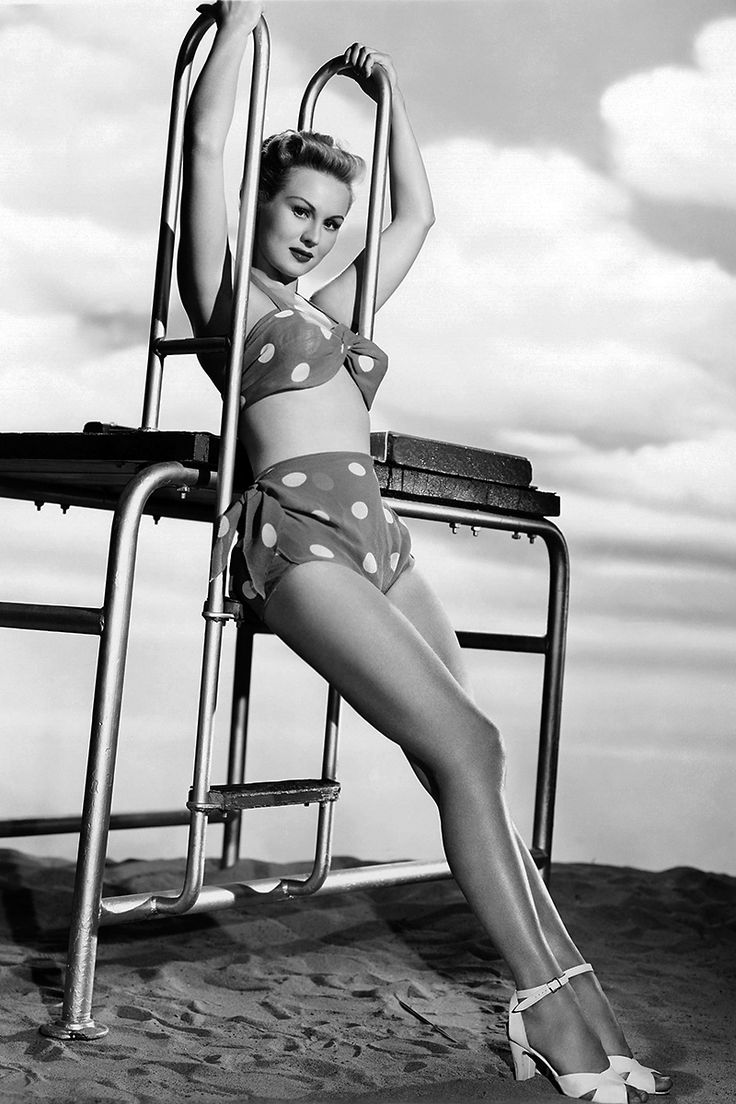







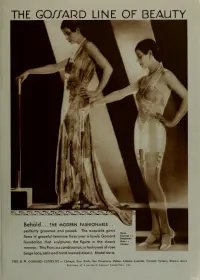



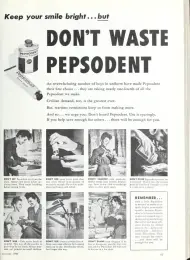


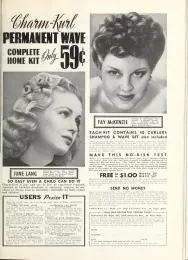





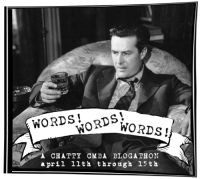

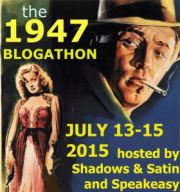
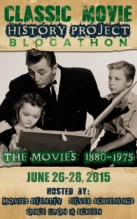
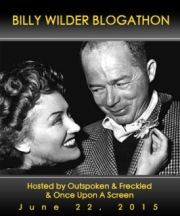


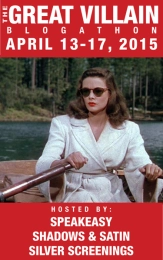


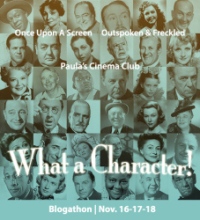



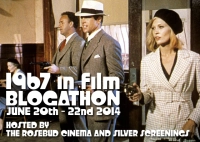


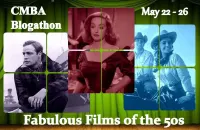
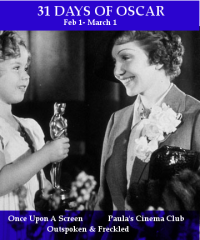
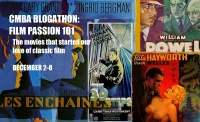







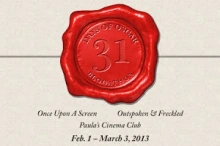




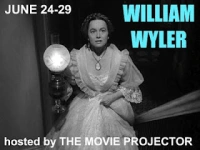





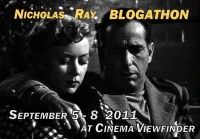

Thanks for the wonderful revisit to this movie! I saw it for the first time a year or two ago thanks to the Warner Archive. I absolutely adore Robert Montgomery — one of those actors who isn’t so well known today, and he really should be. It’s interesting watching him interact with the women in his movies; he has a unique ability to convey deep intimacy and sincerity — when he’s not threatening to chop off their heads, LOL.
Best wishes,
Laura
Thanks, Laura! What a great description of Montgomery! I always enjoy his performances, especially those from the pre-Code era — he always seems to have a laugh lurking beneath the surface. His characters were so full of fun!
one of my fav shearer/montgomery movies (and thats saying a lot, for me) i too love the balcony scene and the hilarious lines, thanks so much for the post!
Thank you for your comment! I love all of Shearer and Montgomery’s films together, but Private Lives is really something special. I could see it a hundred times and still marvel at it.
[…] helmed The Good Earth and several Norma Shearer vehicles, including Private Lives (which I covered here), Smilin’ Through, and The Barretts of Wimpole […]
[…] think I’m going to go with Scenes from Private Lives, which highlights my favorite scenes from one of my favorite pre-Codes. I remember writing this […]
[…] Karen over at the wonderful Shadows and Satin delves into her favorite moments for this flick, and she has some choice picks and great lines. […]
[…] After the movie, feel free to click here for lots more of what I have to say about this fabulous […]
[…] Private Lives (1931) […]